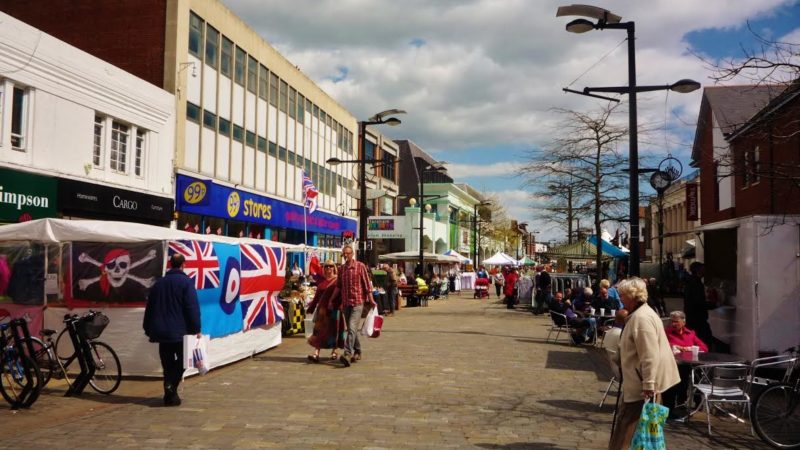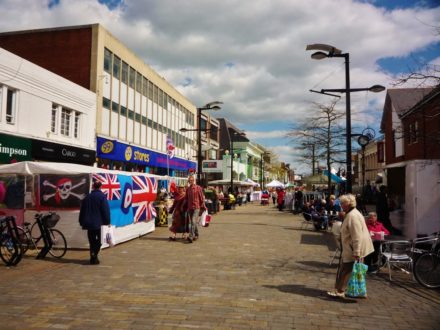

The picture painted by Owen Jones of Southern Hampshire, where I grew up, isn’t one I recognise. To be sure – it’s Tory territory that overwhelmingly voted Brexit. Many former Labour and Tory voters switched to UKIP at the last election, and there will be some voters who were, and are, motivated by racism and attitudes that belong in the dustbin.
But the vision described by Jones in his Guardian piece – of so-called Brexitland filled with either toffs at one extreme or poor and angry extreme right-wingers at the other – just doesn’t ring true. The people I grew up around and served from behind the counter of my local One Stop as a teenager are, for the most part, those who live quiet, comfortable, home-owning, lives as retirees in what is basically a suburb of Portsmouth.
They live in roomy bungalows and semi-detached houses down boring cul-de-sacs with well-tended gardens thanks to the actions of post-war Labour governments. Most do or did quite ordinary jobs: mechanical engineers, electricians, skilled trades. On a Friday night, they go to the local pub, not a golf club, and on Saturday, they’ll wash the car or walk the dog, or watch Portsmouth or Southampton play (football, not rugby).
And if they vote Tory, and have been sucked into an increasingly right wing view of the world, it’s at least in part because the Labour Party has for far too long had too little to say to them about their lives, dreams or anxieties. As far as they are concerned, it’s a given that Labour is incompetent, chaotic and capricious, and they’re not likely to risk their house, car, annual holiday or the grandchildren’s inheritance that they’ve worked all their lives for, in order to find out. They’ve paid taxes all their lives, what more do we want?
If they find it easy to believe that Labour “sold the country out to foreigners” it is in part because, as far as they’re concerned, nothing Labour ever does or says convinces them the party is proud of Britain or particularly approves of people like them. Certainly not old homeowners like them in southern Hampshire, and definitely not their sons or daughters in the Navy, or their ex-forces spouse. Labour to them is a party which only wants to take from them, and give to someone else.
But we should never forget that these are old people who grew up as poor children in our bombed-out cities, amid post-war austerity. The irony is that they’re products of the prosperity, and beneficiaries of the welfare state that Labour governments helped to create.
And they used to be our people. Perhaps they might one day they could be again. But I worry that half the Labour Party has no interest in even pitching for their vote. Why would we? They don’t deserve it, some might argue. Perhaps people in Fareham (above) are right. Perhaps half of Labour doesn’t really like them after all?
And even those in Labour that recognise it might be worth making a pitch for their vote are not quite sure how. Perhaps we find it too uncomfortable to make the necessary compromises in either tone or substance. Are we willing to do what it takes to ensure the Tories can no longer take places like Fareham for granted? If not, what about Basingstoke just up the motorway from there? The electoral map says we will need to win the latter, and lots of places like it, if we ever want to see a Labour government again.
But one thing’s for sure. For as long as we treat places like Fareham as some kind of curiosity, while simultaneously wringing our hands, gnashing our teeth and stroking our chins about politics being too “Londoncentric” and the need to “tackle populism” by “creating a narrative” that “reconnects” with “disaffected voters”, we will struggle to win over large parts of the entire country, not just Fareham.
Ben West sits on the executive of the Young Fabians.
Want to support LabourList’s dedicated coverage of the party? Click here.




More from LabourList
‘If Labour is serious about upskilling Britain, it must mobilise local businesses’
Stella Tsantekidou column: ‘What are we to make of the Labour Together scandal?’
‘Unitarisation risks weakening local democracy unless communities are put in the driving seat’